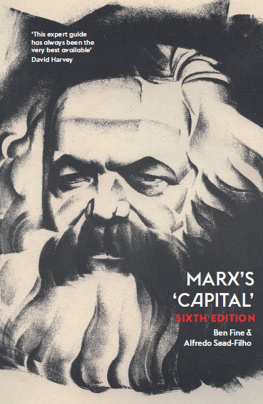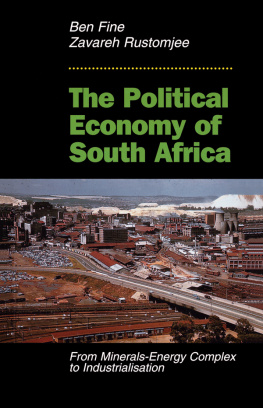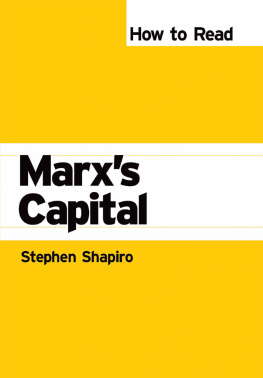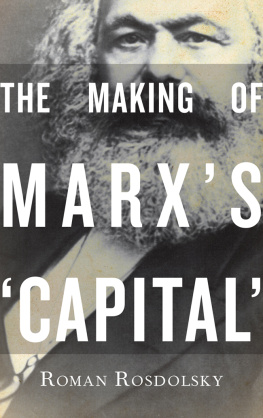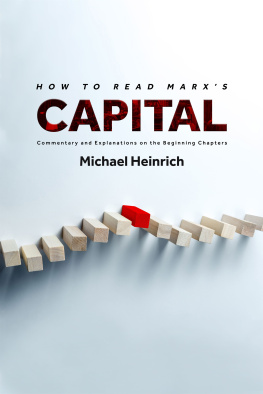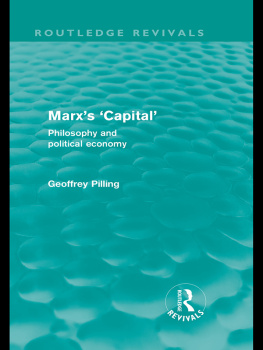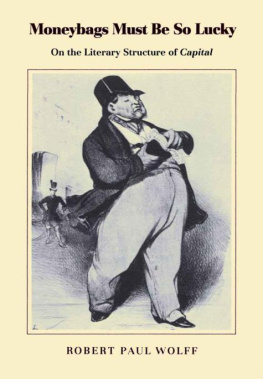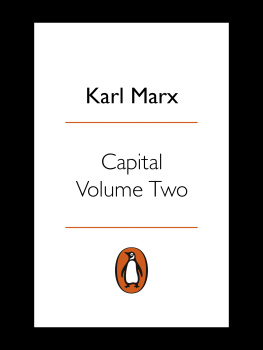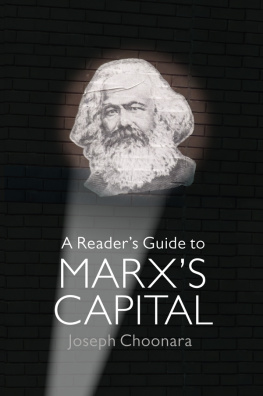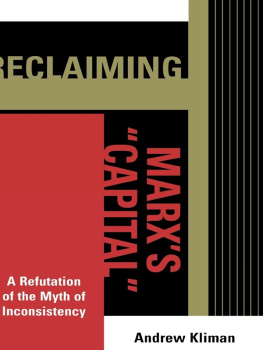First published 1975; this edition published 2016 by
Pluto Press, 345 Archway Road, London N6 5AA
www.plutobooks.com
Copyright Ben Fine and Alfredo Saad-Filho 1975, 2004, 2010, 2016
The right of Ben Fine and Alfredo Saad-Filho to be identified as the authors of this work has been asserted by them in accordance with the Copyright, Designs and Patents Act 1988.
British Library Cataloguing in Publication Data
A catalogue record for this book is available from the British Library
ISBN 978 0 7453 3603 9 Hardback
ISBN 978 0 7453 3697 8 Paperback
ISBN 978 1 7837 1972 3 PDF eBook
ISBN 978 1 7837 1974 7 Kindle eBook
ISBN 978 1 7837 1973 0 EPUB eBook
This book is printed on paper suitable for recycling and made from fully managed and sustained forest sources. Logging, pulping and manufacturing processes are expected to conform to the environmental standards of the country of origin.
Typeset by Stanford DTP Services, Northampton, England
Simultaneously printed in the European Union and United States of America
Preface to the Sixth Edition
Marxs Capital was originally written in the early 1970s and was very much a product of its time. Then, in Britain and elsewhere, an interest in Marxs political economy had been awakened after several years of intense repression under the guise of blaming working people and left-wing movements for the end of the post-war boom. This interest grew, and was fed by the evident decline of the world capitalist economy, and the rejection of mainstream explanations for the growing economic malaise associated with stagflation. Much has changed since then, and successive editions of this book have, in their own ways, reflected the shifting fortunes both of the global economy and of political economy.
The fourth edition of Marxs Capital relaunched this little book with Pluto Press for new times and a new audience in 2004, the third edition having appeared in 1989. The rise of neoliberalism in the 1980s and 1990s had reshaped the capitalist world, extended the hold of global capital to most corners of the planet, and remoulded the political system to support it. Expectations of economic, political and social change were ground down over time, in what has been termed the hollowing out of the state in face of the declining strength and organisation of progressive movements. As the great mobilisations of the 1960s and 1970s receded into the distance, a new generation grew up with much reduced hopes, demands and expectations. For the first time since the mid nineteenth century, there seemed to be no alternatives to capitalism in sight, and the remaining invariably marginal exceptions held on precariously and unattractively in the crevices of the brave new globalised world. The fourth edition offered a small contribution to the emerging responses to these enormous challenges, and it was well received by a wide audience in several countries.
The publication of the fifth and now this sixth edition anticipates, and hopefully in its own way contributes to, a revival of political economy in general and of Marxist political economy in particular. Such optimism is based on a number of factors.
First, while mainstream economics has tightened its intolerant grip on the discipline, dismissing heterodoxy as failing the tests of mathematical and statistical rigour, there are increasing signs of dissatisfaction with the orthodoxy, and there is a growing search for alternatives among those studying economics and the other social sciences, not least with the demands for heterodoxy, pluralism and alternatives in the teaching of economics.
Second, following the predominance of postmodernism and, especially, neoliberalism in setting intellectual agendas across the social sciences over the past two decades, there is now a reaction against the extremes of their worst excesses in theory and practice. Critical thought has turned towards understanding the nature of contemporary capitalism, as most notably reflected in the rise of concepts such as neoliberalism, financialisation, globalisation and social capital. Inevitably, the result is to raise the question of the economy outside of the discipline of economics itself, and to seek guidance from political economy.
Third, material developments have also promoted the case for political economy. These include the growing realisation that environmental degradation, most especially through global warming, is intimately related to capitalism; the aftermath of the collapse of the Soviet Union and the recognition that capitalism has not furnished a progressive alternative, even on its own narrow terms; and the eruption of imperial wars and occupations, even if fought under the name of anti-terrorism or human rights.
Fourth, the long period of relative stagnation following the breakdown of the post-war boom, and the rise of postmodernism and neoliberalism, have had the paradoxical effect of allowing the capitalist economy to be perceived as engaging in business as usual with a modicum of success, even if on a sluggish basis. The eruption of financial crises over the past decade, most dramatically the global crisis that started in mid 2007, has shattered this perspective. It has brought to the fore the key role being played by finance in contemporary capitalism. The systemic relations among finance, industry and the rest of the economy more generally should occupy a prominent place in the subject matter of political economy. With capitalism so demonstrably having failed on its own terms, even under conditions that are arguably the most favourable for it, the case for socialism needs to be made as never before. And it rests upon a Marxist analysis both for its critique of capitalism and for the light it sheds on the potential for alternatives.
Each of these issues is reassessed to a greater or lesser extent in this new edition. But the main purpose of the book remains to provide as simple and concise an exposition of Marxs political economy as the complexity of his ideas allows. Because the book is constrained to be short, the arguments are condensed, but remain simple rather than convoluted; nevertheless, some of the material will require careful reading, particularly the later chapters. Not surprisingly, through its various editions, the text has increased in size, more than doubling from its original length of 25,000 words as new topics have been added, drawn both from Marxs own political economy and from its contemporary relevance. In addition, over time, specific additions have included chapter-by-chapter highlighting of controversies, issues for debate, and suggestions for further reading, which will offer guidance to those interested in more scholarly texts. We regret that this has led to successive editions losing some of the simplicity of the earlier ones (though for ease of reading footnotes continue to be omitted). These (hopefully minor) difficulties are perhaps compounded by the occasional references to how Marxs political economy differs from orthodox economics, placing some strain on the non-economist. But such complexities can be overlooked where necessary and, otherwise, offer compensating insights.


